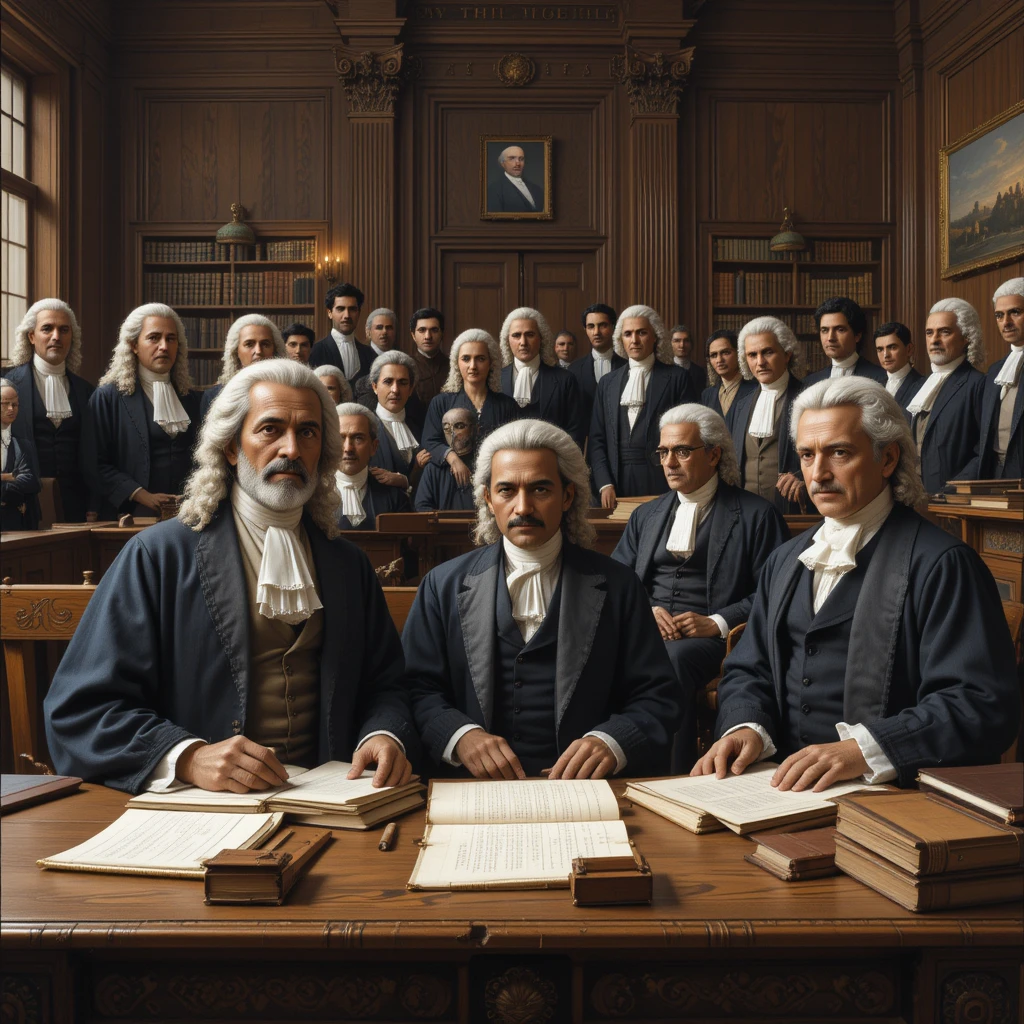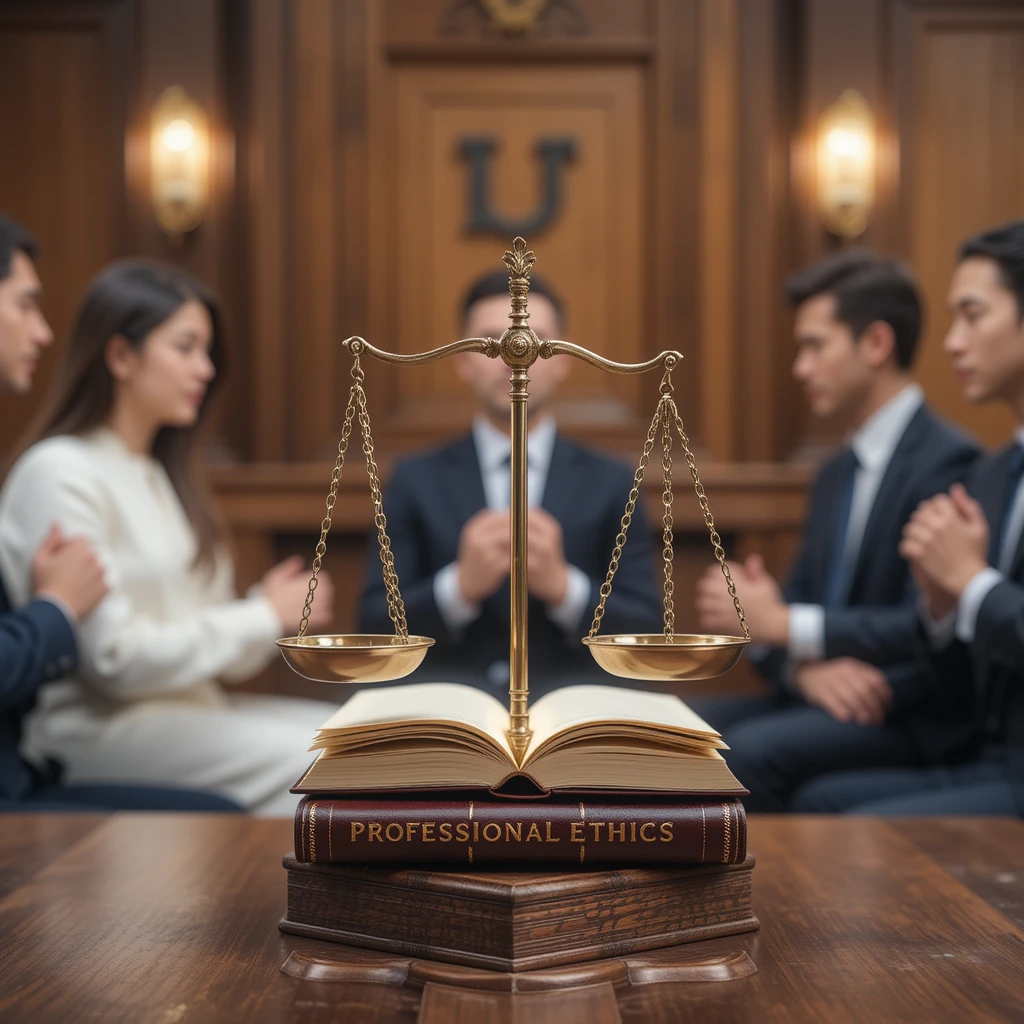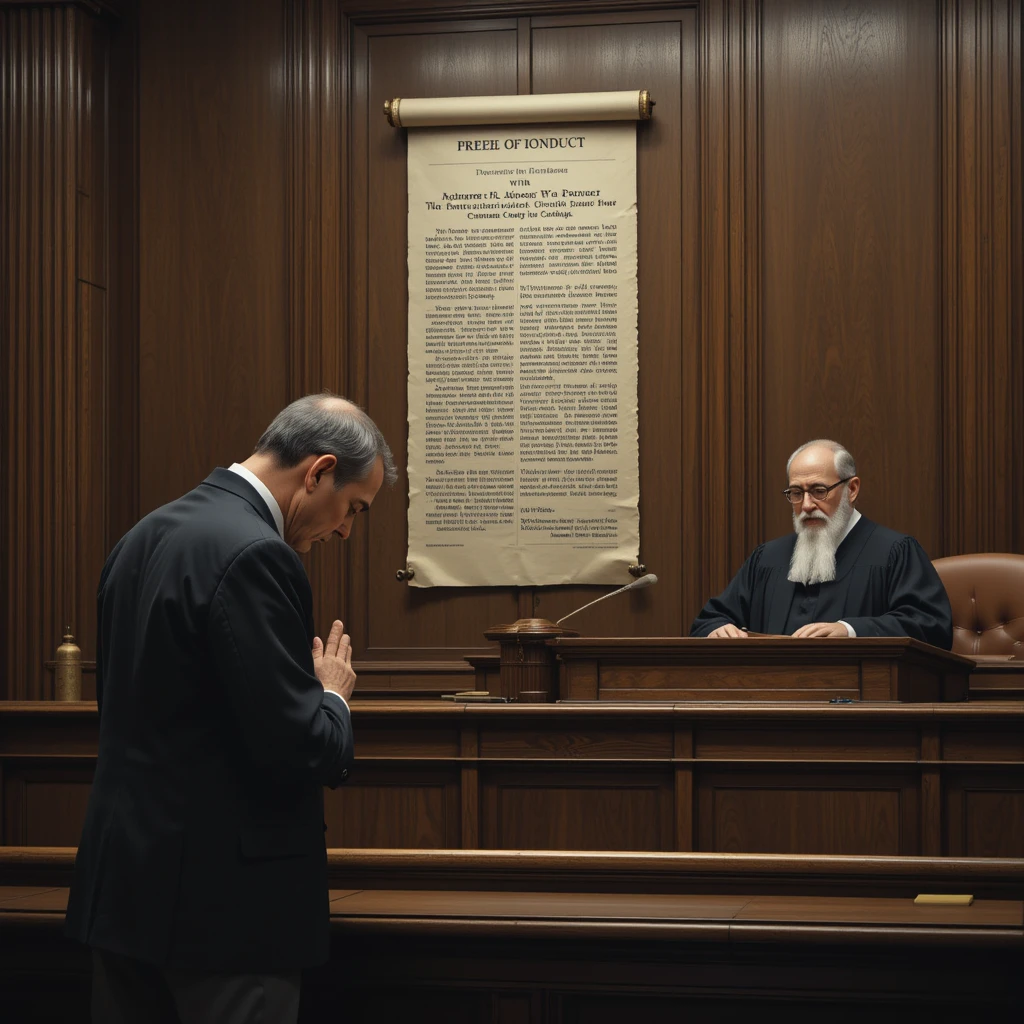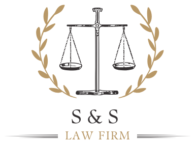Unit-I: Background to Legal Profession
Table of Contents
Q-1 Discuss the historical background of the legal profession in India.
Historical Background of the Legal Profession in India
The legal profession in India has evolved through several phases—from informal and tradition-based justice systems in ancient India to a structured and codified profession during British colonial rule, eventually culminating in a unified legal framework after independence.

1. Ancient and Medieval India
- Informal Justice System:
In early Indian society, disputes were resolved by village panchayats, elders, or religious institutions. Justice was deeply rooted in Dharma (moral duty) rather than state-enforced law. - No Organized Legal Profession:
There was no formal class of lawyers. Parties would often be represented by family members or respected elders. Knowledge of religious scriptures (Smritis and Dharmashastras) guided dispute resolution. - Role of Brahmins and Kings:
Kings were the chief dispensers of justice, often advised by Brahmins well-versed in religious texts.
2. Islamic Rule (Medieval Period)
- Influence of Islamic Law:
With the arrival of Muslim rulers, Islamic jurisprudence (Sharia) was introduced, especially in criminal and family law. - Qazis and Muftis:
Islamic judges (Qazis) administered justice. Again, there was no formal legal profession, though trained scholars played advisory roles.
3. British Colonial Era (1772–1947)
a) Introduction of the Adversarial System
- The British established a formal court system based on English common law. This included:
- Supreme Court in Calcutta (1774) – followed by Bombay and Madras.
- Introduction of trained lawyers and legal procedures similar to England.
b) Early Legal Practitioners
- Initially, only British and European lawyers were allowed to practice in the Supreme Courts.
- Indian legal practitioners were permitted to work in the Sadr Adalats (civil courts established by the East India Company).
c) Key Legislations
- Legal Practitioners Act, 1846:
Opened the doors for Indians to practice law in colonial courts. - Indian High Courts Act, 1861:
Unified Supreme and Sadr courts into High Courts. Recognized “advocates,” “vakils,” and “attorneys.” - Legal Practitioners Act, 1879:
Consolidated rules for pleaders and mukhtars. - Indian Bar Councils Act, 1926:
Set up Bar Councils in provinces but did not create an all-India Bar.
4. Post-Independence Period
Advocates Act, 1961
- Unified the legal profession across India.
- Established:
- Bar Council of India (BCI) at the national level.
- State Bar Councils at the state level.
- Created a single designation of ‘advocate’, abolishing the earlier distinctions (vakils, pleaders, etc.).
- Introduced standards of professional conduct, qualifications, and disciplinary mechanisms.
5. Modern Legal Profession
- Today, the legal profession in India is governed by the Advocates Act, 1961, and the rules framed by the Bar Council of India.
- Advocates play a crucial role in upholding the Constitution, ensuring access to justice, and strengthening the rule of law.
Conclusion
The legal profession in India has undergone a remarkable transformation:
- From an informal, moral-duty based system in ancient times
- To a formal, codified, and regulated profession under British rule and post-independence reforms
This evolution reflects India’s journey toward a modern, democratic legal system, grounded in constitutional values and professional ethics.
Q-2 Define professional ethics. Why are they necessary for the legal profession?
Definition of Professional Ethics
Professional ethics refer to the set of moral principles, rules, and standards that govern the conduct of professionals in their respective fields. In the context of the legal profession, professional ethics are the code of behavior that lawyers must follow in their relationship with clients, courts, colleagues, and society.

According to the Bar Council of India, professional ethics include:
- Duties to the court
- Duties to the client
- Duties to the opponent
- Duties to colleagues
- Duties to society at large
Why Are Professional Ethics Necessary for the Legal Profession?
1. Ensures Justice and Fairness
- Lawyers play a key role in the administration of justice.
- Ethical conduct ensures that justice is not only done but also seen to be done.
2. Maintains Public Trust
- The legal profession serves the public. Unethical behavior by lawyers can damage the credibility of the justice system.
- Ethics promote transparency, integrity, and honesty, leading to greater public confidence.
3. Upholds the Rule of Law
- Lawyers are guardians of constitutional and legal rights.
- Ethical practice supports the rule of law by ensuring that lawyers do not misuse their knowledge or position.
4. Protects Client Interests
- Lawyers handle sensitive information and are expected to act in the best interest of their clients.
- Ethics ensure confidentiality, loyalty, and diligence in client representation.
5. Promotes Professionalism and Respect
- Ethical behavior encourages mutual respect between the Bar and Bench.
- It also fosters a healthy legal culture, free from hostility, malpractice, and corruption.
6. Prevents Abuse of Power
- Legal knowledge and advocacy power can be misused for personal or political gain.
- Professional ethics act as a check on power, preventing such abuse.
7. Facilitates Disciplinary Action
- Clearly defined ethical rules enable the Bar Councils and courts to take disciplinary action in cases of misconduct.
Conclusion
Professional ethics are the backbone of the legal profession. Without them, the profession would lose its moral foundation, legal practice would become commercialized, and the justice delivery system would suffer. Upholding ethical standards is not just a legal obligation—it is a moral duty that defines the integrity and dignity of the legal fraternity.
Q-3 Explain the standards of professional conduct and etiquette for advocates.
Standards of Professional Conduct and Etiquette for Advocates
The standards of professional conduct and etiquette for advocates in India are primarily governed by:
- Advocates Act, 1961 (especially Section 49), and
- Bar Council of India (BCI) Rules, Chapter II, Part VI — “Standards of Professional Conduct and Etiquette”
These standards define the expected ethical behavior, professional decorum, and duties of an advocate in their dealings with the court, clients, opponents, colleagues, and the public.

I. Duties of an Advocate Towards the Court
- Respect for the Court
- Show respect and maintain the dignity of the court.
- Refrain from using abusive or disrespectful language.
- Act Fairly
- Must not mislead the court with false facts or suppress evidence.
- Avoid Communication with Judges
- No private communication with a judge relating to a pending case.
- No Undue Influence
- Must not use influence or pressure to win a case.
II. Duties Towards Clients
- Confidentiality
- Maintain strict confidentiality regarding client matters.
- Loyalty and Dedication
- Represent the client with full commitment and avoid conflict of interest.
- Not to Overreach
- Avoid promising specific outcomes or misleading the client.
- No Contingent Fee
- Must not accept fees contingent on the outcome of the case.
- Refund of Fees
- If the brief is returned, the unearned portion of the fee should be refunded.
III. Duties Towards Opponents
- Courtesy and Fairness
- Treat opposing advocates with respect and professionalism.
- Avoid Personal Attacks
- No derogatory or defamatory statements against opponents.
IV. Duties Towards Colleagues
- No Undercutting
- Must not offer lower fees to attract another advocate’s client.
- Respect for Seniority
- Junior lawyers should treat senior advocates with respect and learn from them.
- No Advertisement
- Advocates should not advertise their services or solicit clients.
V. Duties in Public and Personal Conduct
- No Touting or Canvassing
- Advocates should not canvas for work through agents or otherwise.
- Dignified Conduct
- Conduct must uphold the dignity of the legal profession, both inside and outside the courtroom.
- No Illegal Activities
- Advocates must avoid any illegal or dishonest behavior that could discredit the profession.
VI. Noteworthy Judicial Interpretations
- Re: Vinay Chandra Mishra (1995)
- Reaffirmed the importance of ethical standards and contempt jurisdiction.
- Supreme Court Bar Association v. Union of India (1998)
- Clarified that only the Bar Council has disciplinary authority over advocates.
Conclusion
The standards of professional conduct and etiquette are essential for:
- Maintaining the nobility and discipline of the legal profession,
- Ensuring public confidence in the justice system, and
- Promoting a culture of fairness, responsibility, and integrity.
Failure to adhere to these standards may lead to disciplinary action such as suspension or removal from the Bar Council rolls.
Q-4 Discuss the significance of Re Vinay Chandra Mishra in shaping professional ethics for lawyers.
Significance of Re: Vinay Chandra Mishra (1995) in Shaping Professional Ethics for Lawyers
🧑⚖️ Case Citation:
Re: Vinay Chandra Mishra, AIR 1995 SC 2348
📌 Background of the Case:
- Vinay Chandra Mishra, a senior advocate and Member of Parliament, made contemptuous and threatening remarks against a sitting High Court judge during the court proceedings.
- The Supreme Court took suo motu cognizance of the matter under Article 129 and Article 142 of the Constitution.
- A Constitution Bench of the Supreme Court held the advocate guilty of criminal contempt of court and suspended his practice for 3 years.
⚖️ Legal Issues Involved:
- Whether the Supreme Court had the power to suspend an advocate from practice.
- Whether contempt of court by an advocate amounts to professional misconduct.
- Whether the punishment imposed was constitutionally valid.
🌟 Key Observations by the Supreme Court:
- Advocates are Officers of the Court:
Lawyers are not mere agents of the client but officers of the court, and their behavior must uphold the dignity of the judiciary. - Ethical Conduct is Fundamental:
The legal profession demands a high level of integrity, discipline, and ethical behavior. Misconduct that undermines the court’s dignity must be dealt with severely. - Punishment under Contempt Powers:
The Supreme Court held that it has inherent powers to suspend an advocate from practice under Article 129 read with Article 142 (complete justice).
🔍 Significance in Shaping Professional Ethics:
1. Reinforced the Link Between Ethics and Contempt
- The case established that professional misconduct, when amounting to contempt of court, directly affects an advocate’s right to practice.
2. Dignity of the Court is Supreme
- Advocates must conduct themselves with dignity and respect towards the judiciary, even in disagreement.
3. Redefined Judicial Power Over the Bar
- The case was pivotal in interpreting the court’s authority to discipline lawyers without waiting for Bar Council action.
4. Strengthened Ethical Awareness
- Sent a strong message that unethical or disruptive behavior will not be tolerated, regardless of the advocate’s seniority or political status.
5. Debate on Separation of Powers
- The judgment led to a larger debate, and in a subsequent case —
Supreme Court Bar Association v. Union of India (1998), the Court ruled that: - While courts can punish for contempt, only Bar Councils have the authority to suspend or disbar an advocate.
- Re: Vinay Chandra Mishra was partly overruled on this point.
🧠 Conclusion:
Re: Vinay Chandra Mishra (1995) played a landmark role in elevating ethical standards in the legal profession.
It highlighted:
- The moral and legal obligations of advocates,
- The consequences of unethical courtroom conduct, and
- The importance of balancing disciplinary mechanisms between the judiciary and the Bar Council.
Even though its scope was later limited, its impact in promoting professional ethics, dignity of the court, and accountability of advocates remains significant.
Q-5 What is the role of professional ethics in maintaining public trust in the legal profession?
Role of Professional Ethics in Maintaining Public Trust in the Legal Profession
Professional ethics are the foundation of integrity, accountability, and fairness in the legal profession. In a system where lawyers are entrusted with justice, liberty, and the rights of individuals, public trust is not optional — it is essential. Professional ethics serve as the bridge between legal authority and public confidence.
✅ Key Roles of Professional Ethics in Ensuring Public Trust
1. Promotes Integrity and Honesty
- Ethical advocates are expected to be truthful and transparent in all dealings.
- This builds faith in lawyers as trustworthy representatives and officers of the court.
2. Ensures Accountability
- Professional ethics create a standard for responsibility toward clients, courts, and society.
- Bar Councils enforce these ethics through disciplinary action against misconduct.
3. Safeguards Fair Trial and Rule of Law
- Ethical conduct prevents manipulation of the system, bribery, or tampering with evidence.
- A fair and impartial legal process reassures the public that justice is possible and accessible.
4. Preserves the Dignity of the Judiciary
- Advocates must maintain respect for the judiciary and avoid any conduct that undermines its authority.
- A respectful Bar strengthens the credibility of the Bench, enhancing overall public trust in courts.
5. Protects Client Interests
- Professional ethics ensure confidentiality, loyalty, and diligence toward clients.
- When clients feel secure and fairly treated, they are more likely to trust the legal system.
6. Discourages Exploitation and Corruption
- Ethics prohibit practices like undercutting, touting, or false promises, reducing the risk of exploitation.
- A clean profession contributes to a positive public perception of legal practitioners.
7. Enhances Respect for Legal Professionals
- Ethical lawyers enjoy public respect and credibility.
- The profession as a whole benefits when its members uphold high moral and professional standards.
⚖️ Judicial Observations Supporting the Role of Ethics
- Re: Vinay Chandra Mishra (1995):
Advocates are officers of the court and must maintain its dignity; unethical behavior damages public confidence. - Supreme Court Bar Association v. Union of India (1998):
Emphasized the role of Bar Councils in maintaining standards, thereby protecting public trust.
📌 Conclusion
Professional ethics are not just internal codes of conduct; they are a public assurance that legal professionals can be trusted with justice. Without ethical standards:
- Lawyers may lose credibility,
- The justice system may appear corrupt or biased,
- And society’s belief in the rule of law would deteriorate.
In essence, professional ethics are the moral compass that ensures the legal profession remains a pillar of justice, not merely a business of advocacy.
Q-6 Explain the concept of professional misconduct with reference to Supreme Court Bar Association v. Union of India.
Concept of Professional Misconduct with Reference to
🧑⚖ Supreme Court Bar Association v. Union of India (1998) 4 SCC 409
✅ I. What is Professional Misconduct?
Professional misconduct refers to improper or unethical conduct by a legal professional that violates the prescribed code of professional ethics and standards.
According to Section 35 of the Advocates Act, 1961:
“When any advocate is found guilty of professional or other misconduct, the State Bar Council may refer the case to its Disciplinary Committee for disposal.”
🔍 Examples of Professional Misconduct:
- Misappropriation of client funds
- Suppressing or fabricating evidence
- Breach of client confidentiality
- Directly dealing with the opposite party without informing the client’s lawyer
- Use of abusive or contemptuous language in court
🧑⚖ II. About the Case: Supreme Court Bar Association v. Union of India (1998)
📜 Background:
This case was decided in response to the Re: Vinay Chandra Mishra (1995) judgment, where the Supreme Court suspended an advocate’s license under its contempt powers.
The issue was whether the Supreme Court had the power to suspend an advocate’s practice under Articles 129 and 142 for contempt of court, or whether only the Bar Council had that power under the Advocates Act, 1961.
⚖️ Key Legal Questions:
- Can the Supreme Court suspend an advocate’s license as a punishment for contempt?
- Who has the legal authority to punish an advocate for professional misconduct?
🧾 Key Findings and Ruling:
✅ 1. Separation of Powers:
- The court clarified that the power to punish for professional misconduct lies solely with the Bar Councils, not with the courts.
✅ 2. Role of the Bar Council:
- The Bar Council is the statutory authority under the Advocates Act, 1961 responsible for disciplinary control, including suspension or disbarment of advocates.
✅ 3. Contempt ≠ Misconduct (Automatically):
- While contempt of court may involve unethical behavior, it doesn’t automatically give courts the power to debar advocates from practice.
- The court can punish for contempt, but it must refer the matter to the Bar Council for action regarding professional misconduct.
✅ 4. Partial Overruling of Re: Vinay Chandra Mishra:
- The 1995 ruling was partly overruled to the extent that it allowed the court to suspend an advocate’s license, bypassing the Bar Council.
📌 Significance of the Case in Understanding Professional Misconduct:
| Aspect | Impact |
|---|---|
| Clarified Jurisdiction | Only Bar Councils can punish professional misconduct, not the judiciary directly. |
| Preserved Advocate’s Rights | Advocates are entitled to a fair hearing before a disciplinary committee. |
| Maintained Institutional Balance | Prevented judicial overreach and preserved the autonomy of Bar Councils. |
| Defined Due Process | Ensured that allegations of misconduct follow statutory procedure. |
🧠 Conclusion:
The Supreme Court Bar Association v. Union of India case reinforced the idea that professional misconduct must be dealt with through proper disciplinary mechanisms under the Advocates Act. It prevented the judiciary from acting unilaterally in suspending advocates and thus upheld the rule of law, fair trial, and institutional integrity of the legal profession.
Q-7 Discuss the importance of ethical behavior in the legal profession.
Importance of Ethical Behavior in the Legal Profession
Ethical behavior in the legal profession is the cornerstone of justice and the rule of law. Lawyers occupy a vital role as officers of the court, advocates for their clients, and protectors of legal rights. Their actions directly influence the public’s trust in the fairness, transparency, and integrity of the legal system.
✅ Key Reasons Why Ethical Behavior is Important
1. 🏛️ Preserves the Dignity of the Legal Profession
- Ethical conduct maintains the honor and reputation of lawyers and the profession as a whole.
- Misconduct brings disrepute to the judiciary and diminishes the credibility of the legal system.
2. ⚖️ Promotes Justice and Rule of Law
- Ethical lawyers contribute to a fair trial and a system free from manipulation.
- They uphold the principle that no one is above the law, including themselves.
3. 🧑🤝🧑 Ensures Trust Between Lawyer and Client
- Clients entrust lawyers with sensitive information and critical legal matters.
- Ethical lawyers protect confidentiality, avoid conflicts of interest, and act in the best interests of the client.
4. 📈 Strengthens Public Confidence in the Judiciary
- When lawyers behave ethically, the public believes in the fairness of the courts.
- This encourages people to seek legal remedies rather than resorting to extra-legal methods.
5. 🧑⚖️ Promotes Professional Accountability
- Ethical rules ensure that lawyers are answerable to their clients, the court, and professional bodies like Bar Councils.
- It creates a culture of self-discipline and responsible conduct.
6. 💼 Ensures Professional Success and Respect
- Lawyers known for ethical practice gain respect, long-term credibility, and client loyalty.
- They also have a better chance of career growth, judicial appointments, or leadership roles in the legal community.
🧾 Legal Framework Supporting Ethical Conduct
- Advocates Act, 1961 – Section 35 deals with misconduct and disciplinary action.
- Bar Council of India Rules, Part VI, Chapter II – Lays down detailed rules on professional conduct and etiquette.
⚖️ Judicial Perspective
🔹 Re: Vinay Chandra Mishra (1995)
“Lawyers are not mere agents of their clients; they are officers of the court and owe duties to society at large.”
🔹 Supreme Court Bar Association v. Union of India (1998)
Reaffirmed that ethical breaches should be addressed through statutory disciplinary processes, emphasizing the importance of due process and fairness in handling misconduct.
📌 Conclusion
Ethical behavior is not just a moral requirement but a professional necessity in law. It ensures:
- Justice is delivered fairly,
- Legal processes remain credible, and
- The profession maintains its noble status in society.
Without ethical standards, the legal profession would risk becoming transactional, corrupt, and distrusted, undermining democracy and the rule of law.
Q-8 Critically analyze the challenges faced by lawyers in adhering to professional ethics.
Critical Analysis: Challenges Faced by Lawyers in Adhering to Professional Ethics
Professional ethics are vital to upholding the dignity, credibility, and trust in the legal profession. However, despite having a well-laid ethical code (under the Advocates Act, 1961 and Bar Council Rules), lawyers often face multiple real-world challenges in consistently adhering to ethical standards.
⚖️ 1. Conflict Between Client Interest and Ethical Duty
- Challenge: Lawyers are expected to represent their clients zealously while also upholding justice and fairness.
- Example: Clients may demand unethical actions (e.g., hiding facts, delaying proceedings), placing the advocate in a moral dilemma.
- Ethical Risk: Prioritizing client loyalty over truth can lead to misconduct and miscarriage of justice.
🧑⚖️ 2. Commercialization and the ‘Business’ of Law
- Challenge: Law practice has become highly competitive and revenue-driven, especially in urban areas and corporate law.
- Consequence: This fosters unethical practices like touting, client poaching, overcharging, and misrepresentation.
- Ethical Risk: Compromising integrity for financial gains undermines the nobility of the legal profession.
📉 3. Lack of Ethical Education and Mentorship
- Challenge: Many law graduates lack practical training in professional conduct or receive unethical mentorship from seniors.
- Result: New lawyers may unknowingly adopt unethical courtroom practices or norms.
- Ethical Risk: The erosion of values at the foundational level weakens the profession long-term.
⚖️ 4. Influence of Politics and Powerful Clients
- Challenge: When dealing with politically influential or wealthy clients, lawyers may face pressure to misuse legal processes or manipulate outcomes.
- Ethical Dilemma: Risk of losing clients or facing threats can discourage adherence to strict ethical codes.
- Ethical Risk: Undermines judicial independence and equality before law.
🏛️ 5. Weak Enforcement of Disciplinary Mechanisms
- Challenge: Bar Councils often delay or fail to act swiftly on professional misconduct complaints.
- Example: As seen in Bhupendra Kumar Sharma v. Bar Council, Pathankot, delayed or inadequate action affects the system’s credibility.
- Ethical Risk: Lack of deterrence encourages repeat offenses or unchecked misconduct.
🕊️ 6. Balancing Freedom of Speech and Court Decorum
- Challenge: Advocates must argue freely and fearlessly, but without crossing into contempt or disrespect.
- Example: In Re: Vinay Chandra Mishra (1995), the advocate was held in contempt for threatening a judge.
- Ethical Risk: Misuse of free speech can lead to erosion of court dignity and professionalism.
🧑⚕️ 7. Psychological Stress and Burnout
- Challenge: Long hours, high-stakes cases, emotional burdens, and inconsistent income can affect mental health.
- Impact: Stress may lead to emotional decisions, unethical shortcuts, or loss of professional decorum.
- Ethical Risk: Deteriorates decision-making and client relationships.
🎯 Conclusion: A Balancing Act Between Idealism and Reality
While the ethical ideals of the legal profession are clear, the practical challenges are significant and multi-dimensional. Upholding professional ethics demands:
- Institutional reforms in legal education and Bar Councils,
- Personal integrity and courage among advocates,
- Supportive mentorship, and
- Effective accountability mechanisms.
⚖️ Ethical lawyering is not just about compliance, but about moral leadership in pursuit of justice.
